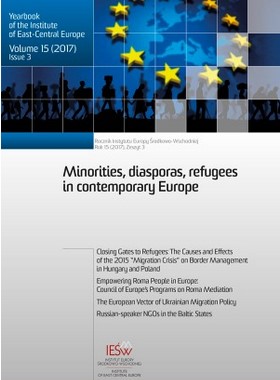Koniec zimnej wojny, transformacja Europy Środkowej i Wschodniej a moc eksplanacyjna i prognostyczna teorii stosunków międzynarodowych
Eastern Europe and the Explanatory-Prognostic Power of Theories of International Relations
Author(s): Andrzej PodrazaSubject(s): Political history, International relations/trade, Post-War period (1950 - 1989), Cold-War History
Published by: Instytut Europy Środkowej
Keywords: the end of the Cold War; the democratization process; Central and Eastern Europe; theories of international relations;
Summary/Abstract: The aim of the article is to show the explanatory and prognostic power of theories of international relations (neorealism, neo-liberal institutionalism and social constructivism) in the situation of visible problems with predicting the end of the Cold War and explaining the democratization process in the countries of Central and Eastern Europe and other parts of the world. In the face of significant changes that have influenced the formation of a new post-Cold War international order, it is necessary to consider the importance of the theory in adopting appropriate research strategies so that on the one hand, it is possible to predict the course of events with some degree of probability and on the other, to explain their essence and importance. The end of the Cold War and the process of transforming the countries of Central and Eastern Europe thus pose a general and extremely important question about the possibility of developing a scientific approach to the analysis of international relations, which goes beyond only short-term observation of current events. The article analyzes the most important theoretical approaches in the context of adopting such a research strategy, thanks to which one could depart from the dominance of extreme, mutually exclusive positions.
Journal: Rocznik Instytutu Europy Środkowo-Wschodniej
- Issue Year: 17/2019
- Issue No: 1
- Page Range: 159-178
- Page Count: 20
- Language: Polish

